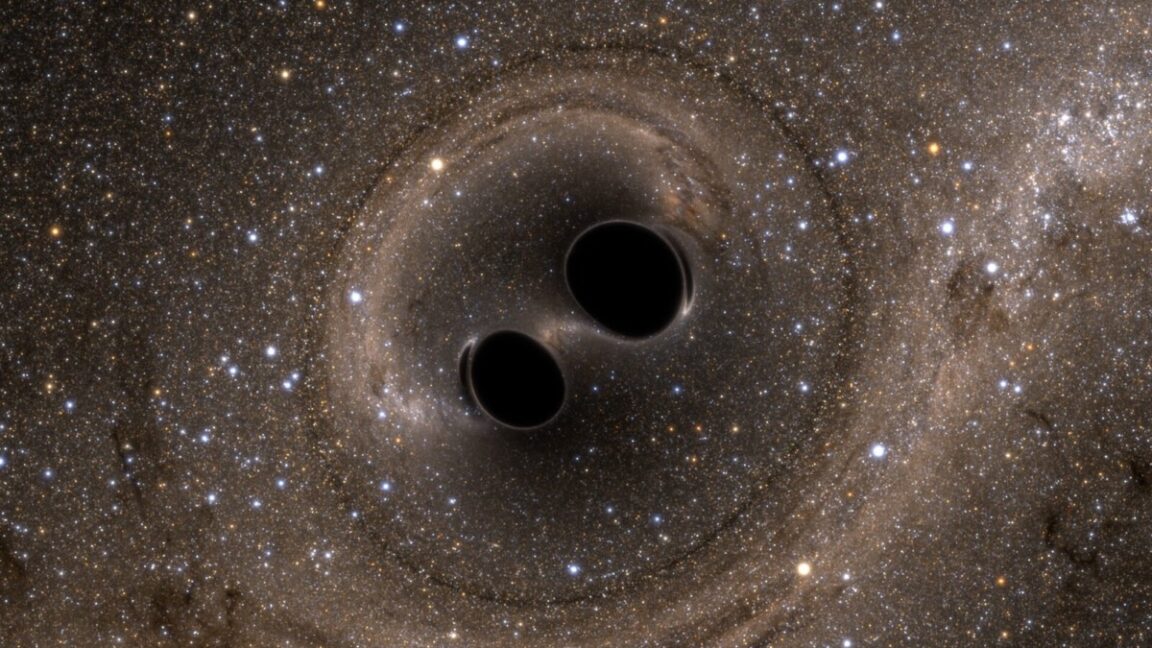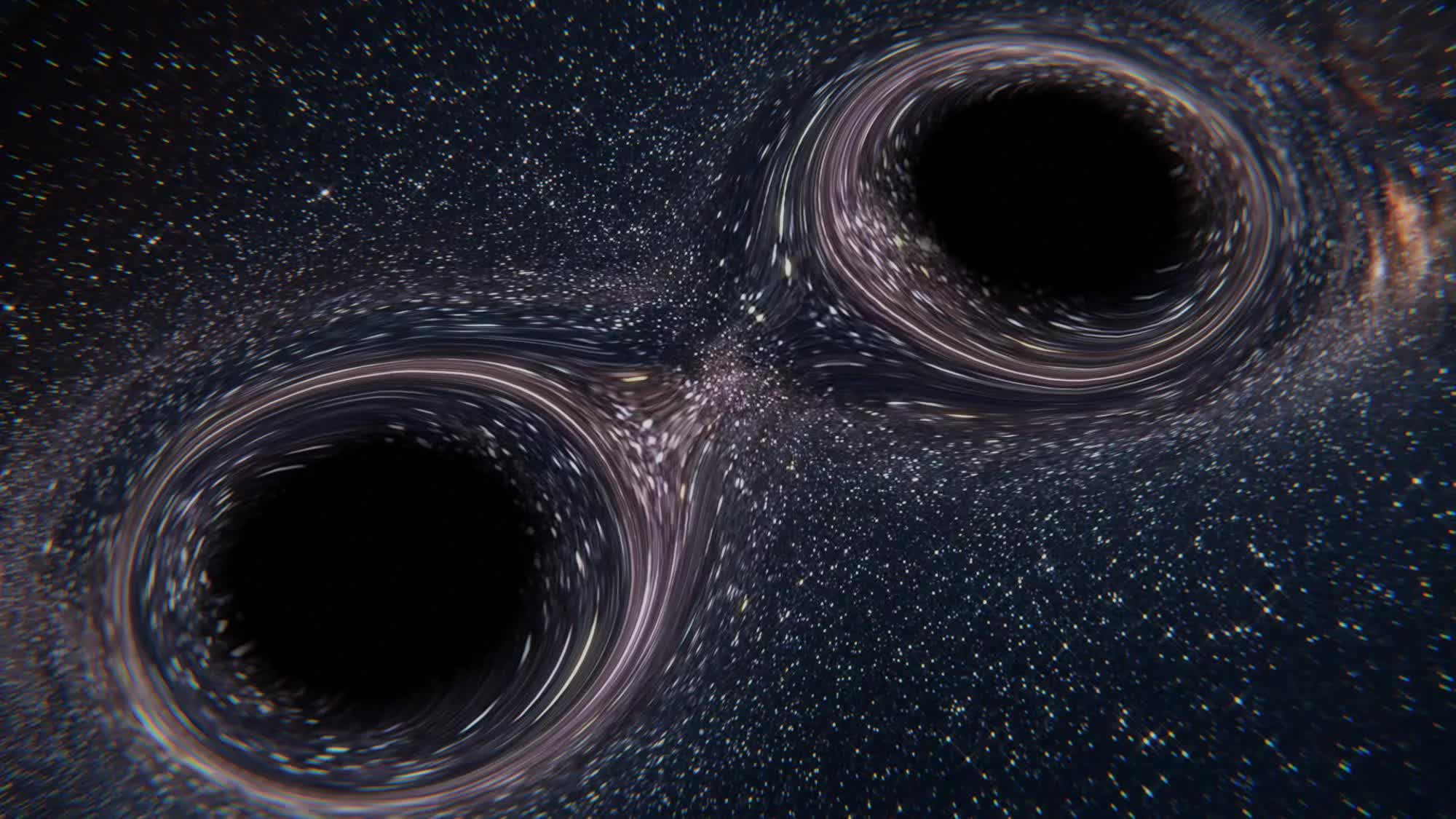T4K3.news
Record black hole merger detected by LIGO team
The LIGO/Virgo/KAGRA collaboration has identified a merger creating a black hole 225 times more massive than our Sun.

The event resulted in a new black hole with a mass 225 times larger than our Sun.
New black hole emerges from record merger
Physicists from the LIGO/Virgo/KAGRA collaboration have identified the gravitational wave signal GW231123, marking the most massive merger of two black holes recorded. This merger formed a black hole that exceeds the mass of our Sun by 225 times. The announcement occurred at the Edoardo Amaldi Conference on Gravitational Waves held in Glasgow, Scotland.
Key Takeaways
"This merger sets a new record in black hole physics."
This quote from a physicist highlights the significance of the merger event.
"Gravitational waves reveal the universe's hidden secrets."
A statement reflecting the importance of gravitational wave research from a member of the collaboration.
This historic merger underscores a growing understanding of black hole physics and the universe's complexity. With LIGO/Virgo/KAGRA's ongoing research, as they detect more gravitational waves, scientists can better explore the evolution of black holes and the fundamental laws of physics. As new instruments come online, such as LIGO-India, the potential for groundbreaking discoveries expands.
Highlights
- This merger sets a new record in black hole physics.
- Each discovery brings us closer to understanding the universe.
- Gravitational waves reveal the universe's hidden secrets.
- With each merger, we learn more about black holes.
Potential impact on funding for space research
Significant discoveries in astrophysics may affect future funding and public interest in space programs.
The ongoing research offers exciting possibilities for future discoveries in astrophysics.
Enjoyed this? Let your friends know!
Related News

LIGO detects groundbreaking black hole merger

Largest black hole merger detected by LIGO-Virgo-KAGRA

LIGO makes significant black hole discovery amid budget cuts

Massive black hole merger discovered

Astronomers capture birth of supermassive black hole

Cameron Young takes commanding lead in Wyndham Championship

Cameron Young wins first PGA Tour title at Wyndham

Astronomers observe second flare from same black hole
